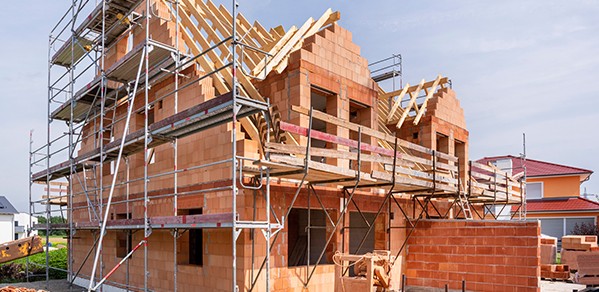
Cambridge engineers will join a new £6 million project exploring the extent to which the circular economy could meet the UK’s building needs – using zero new material extractions, with zero emissions and zero waste.
We will improve our understanding of the physical features of our current building stock and develop tools to assist decision-making. This will allow us to anticipate how to best serve the future building needs and space solutions with minimal greenhouse gas emissions and resource use.
Dr André Cabrera Serrenho
BuildZero, led by the University of Sheffield, and funded by the EPSRC, will be carried out in partnership with the Universities of Cambridge, Manchester and Bath, Cardiff University, and industrial collaborators.
The five-year project will develop a detailed vision of more sustainable building practices, considering the options for developing methods for building without extracting new resources, as well as eliminating waste and reducing carbon emissions from material extraction and production.
BuildZero will assess the extent to which the vision for a circular economy is achievable at regional and national level and will provide a platform for demonstrating these solutions at scale.
At Cambridge, Professor Jonathan Cullen and Dr André Cabrera Serrenho will be developing the most complete and open characterisation of the existing building stock in the UK, including physical features, ownership status and patterns of use.
“This will allow us to anticipate how to best serve the future building needs and space solutions with minimal greenhouse gas emissions and resource use,” said Dr Cabrera Serrenho, Assistant Professor in Engineering, Environment and Sustainable Development.
Buildings and infrastructure are responsible for more than 40% of the UK’s carbon emissions, produce more than 60% of the UK’s waste, and consume approximately 50% of all extracted materials globally. So, to decarbonise construction, significant changes are required.
The circular economy is a widely recognised opportunity to reduce both resource consumption and carbon emissions. In a circular economy, materials are kept at the highest value possible, for example retrofitting buildings and repurposing buildings to extend their lifespans.
In the past, circular economy examples for the building sector have mostly focused on case studies of individual buildings, or recycling of individual materials, which misses the opportunity for making changes to the wider system. BuildZero aims to present a larger-scale, systems-level approach to making changes in the construction sector.
The research will use methods from across several disciplines, including architecture, structural engineering, materials science and social sciences to understand the existing building stock, resource and waste flows, social attitudes and economics surrounding potential circular economy business models for the construction sector.
The research programme will culminate in a range of demonstrator projects, interactive tools, detailed strategies, and ultimately a series of pathways to achieve the BuildZero vision of a UK building stock with zero new raw material extraction, zero emissions and zero waste.
Dr Cabrera Serrenho added: “We are excited to be part of BuildZero, and to contribute to revealing novel opportunities to enhance our building stock with minimal emissions and material inputs. At Cambridge, we will improve our understanding of the physical features of our current building stock and develop tools to assist decision-making for various stakeholders.”
Dr Danielle Densley Tingley, Senior Lecturer in the Department of Civil and Structural Engineering at the University of Sheffield, who will lead the project, said: “This funding is an exciting opportunity to explore if, and under what timeframes, a circular economy can be achieved for the UK’s building stock, whilst meeting essential societal needs. We will be working in close collaboration with industry partners to support changes in practice and help catalyse the shift to a widespread circular economy in the built environment.”
Professor Maria Sharmina, from the Tyndall Centre for Climate Change Research at the University of Manchester, said: “We are excited to embark on the BuildZero programme aiming to transform the UK's built environment from a linear to a circular system. At Manchester, we will build on the engineering, material and social foundations of BuildZero, to evaluate the economic feasibility of a circular economy for construction. We will work with companies across the supply chain to co-design new circular business models and to conduct techno-economic modelling.”
Dr Rick Lupton, from the University of Bath, said: “We are really looking forward to working with BuildZero’s team of researchers and partners. Through this project, we are aiming to get a clearer view of how different approaches to a more circular economy fit together for the UK building stock as a whole, and therefore, where the largest opportunities lie. At Bath, we will be mapping the availability of relevant resource flows in the UK and applying Life Cycle Assessment methods to quantify environmental impacts of the circular economy strategies.”
Dr Kersty Hobson, from the School of Geography and Planning at Cardiff University, said: “It is very important that the issues of social inclusion, impact and acceptability are fundamental to the goals and outcomes of BuildZero. I am looking forward to leading key work in these areas, in particular co-developing visions of sustainable buildings futures with a wide range of stakeholders.”
Adapted from a University of Sheffield press release.

